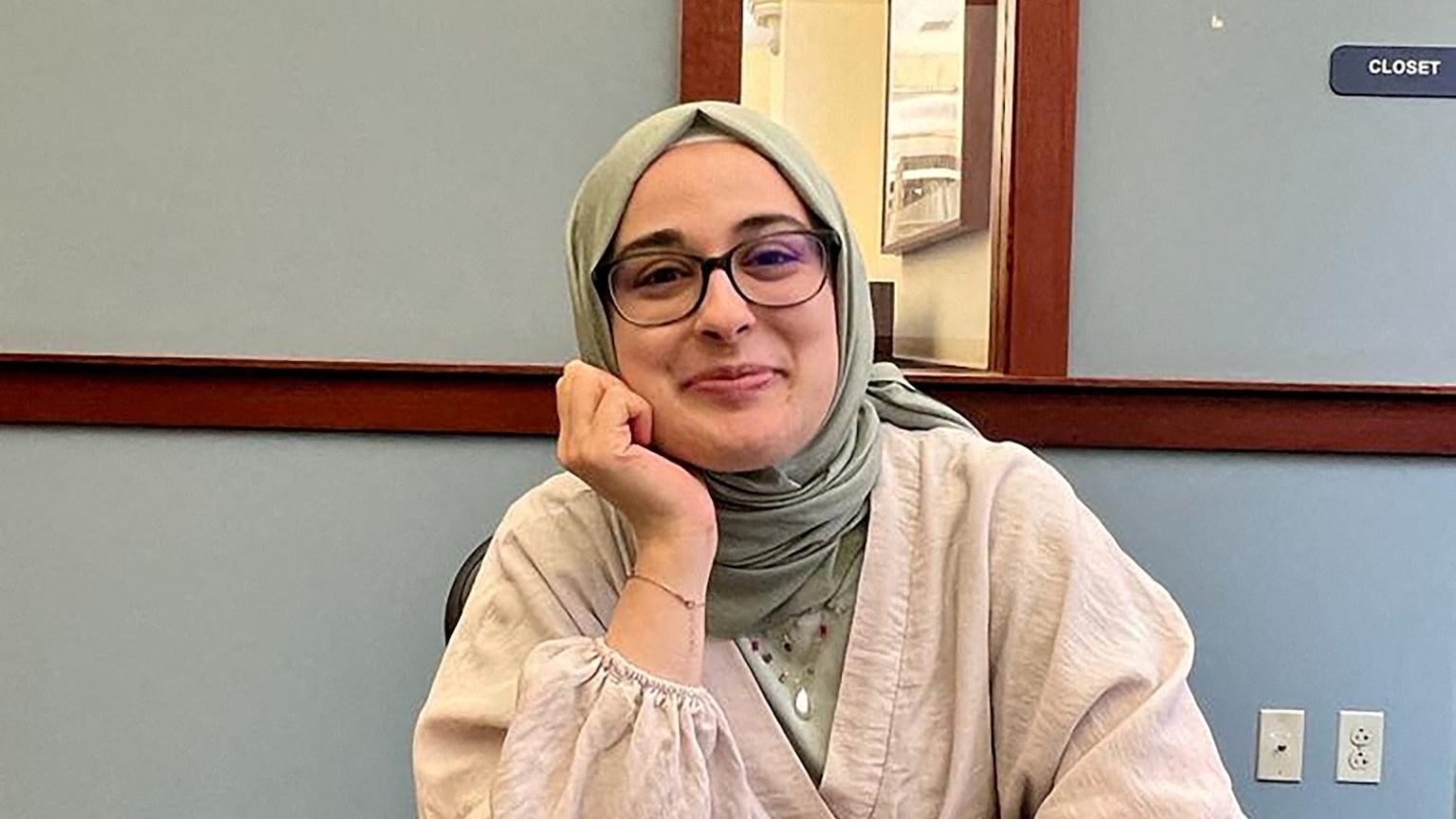A federal judge in Vermont on Friday ordered that a Tufts University doctoral student be released on bail from ICE custody after her visa was revoked by the Trump administration.
U.S. District Judge William Sessions slammed the government in ordering Rumeysa Ozturk, a Turkish notional, released while their case against her proceeds, saying that the government had not produced any evidence against her aside from an op-ed she co-wrote in her student newspaper last year.
“I put the government on notice that they should immediately introduce any such evidence, and that was three weeks ago, and there has been no evidence that has been introduced by the government other than the op-ed. I mean, that literally is the case. There is no evidence here as to the motivation absent consideration of the op-ed,” he said.
Ozturk testified remotely at her bail hearing from the detention facility in Louisiana where she has been held since ICE agents detained her near her home in Massachusetts on March 25.
Her lawyers argued that the former Fulbright scholar is being targeted by the Trump administration because of a column she co-wrote in her student newspaper criticizing the university’s response to resolutions approved by the Tufts Community Union Senate.
Those resolutions called on the university to “acknowledge the Palestinian genocide, apologize for University President Sunil Kumar’s statements, disclose its investments and divest from companies with direct or indirect ties to Israel,” she wrote in the op-ed.
The attorney representing the government did not cross-examine Ozturk during Friday’s bail hearing, nor offer any witnesses that could attest to why she was a threat to foreign policy, as the administration has alleged.
Rumeysa Ozturk, a Turkish doctoral student at Tufts University in Somerville, Mass., poses in an undated photograph provided by her family and obtained by Reuters on March 29, 2025.
Courtesy of the Ozturk Family via Reuters
Judge Sessions also highlighted several of the declarations that were submitted in Ozturk’s defense, attesting to her “peaceful and compassionate character.”
“I will just express my own observation and that this is a woman who’s just totally committed to her academic career. This is someone who probably doesn’t have a whole lot of other things going on other than reaching out to other members of the community in a caring and compassionate way,” the judge said.
“There is absolutely no evidence that she has engaged in violence or advocated violence. She has no criminal record. She has done nothing other than essentially attend her university and expand her contacts within the community in such a supportive way,” he said.
In a statement to ABC News issued after her arrest last month, a Department of Homeland Security spokesperson said, “DHS and ICE investigations found Ozturk engaged in activities in support of Hamas, a foreign terrorist organization that relishes the killing of Americans. A visa is a privilege not a right. Glorifying and supporting terrorists who kill Americans is grounds for visa issuance to be terminated. This is commonsense security.”
The judge also preemptively said that he is not open to granting a stay of his order. Instead, he ordered the government to submit a set of conditions that ICE would impose for her release.
“I would like to know immediately when she is released,” he said.
Wearing a hijab, glasses, and an orange jumpsuit, Ozturk testified via Zoom about the humanitarian work she is involved in as part of her studies in child development. She also testified about her involvement in school groups and projects.
Ozturk told the judge that she organized an event she called “collective grieving for children experiencing war and conflicts” that aimed to help children “from Gaza to Israel, from Russia to Ukraine … from all parts of the world.”
“I think as people who are working in academia for child development and well-being, it is sometimes possible that we forget the emotional touch or grief extending to children that we don’t necessarily work with,” she said. “But that doesn’t mean that we don’t grieve for other children, all of them are ours, from all parts of the world experiencing very sad events including war and conflict.”
Ozturk said during the hearing that, should she be released on bail, Tufts has offered her several housing options she hopes to take up in order to finish her Ph.D.
In sworn declarations and court hearings, Ozturk and her lawyers stressed the urgent need for her to be released, noting she has had at least 12 asthma attacks since she was detained. They also accused the detention facility of being overcrowded and unsanitary, which they said may be affecting her well-being.
People gather for a rally in support of Tufts University student Rumeysa Ozturk and Columbia University student activist Mohsen Mahdawi in Foley Square on May 6, 2025, in New York City.
Michael M. Santiago/Getty Images, FILE
At one point during the hearing, she was granted a break to take asthma medication after appearing at several points to clutch her chest as she struggled to speak. She testified she had an asthma attack at an airport in Atlanta when she was being transported to Louisiana.
“I was afraid and I was crying,” she testified, adding that her daily maintenance inhaler was not initially provided to her.
Secretary of State Marco Rubio said last week that the government revoked Ozturk’s visa due to her pro-Palestinian activism.
“If you apply for a visa to enter the United States and be a student, and you tell us the reason you are coming to the United States is not just because you want to write op-eds, but because you want to participate in movements that are involved in doing things like vandalizing universities, harassing students, taking over buildings, creating a ruckus — we’re not going to give you a visa,” stated Rubio, who said that the State Department may have revoked more than 300 student visas since the beginning of the second Trump administration.
